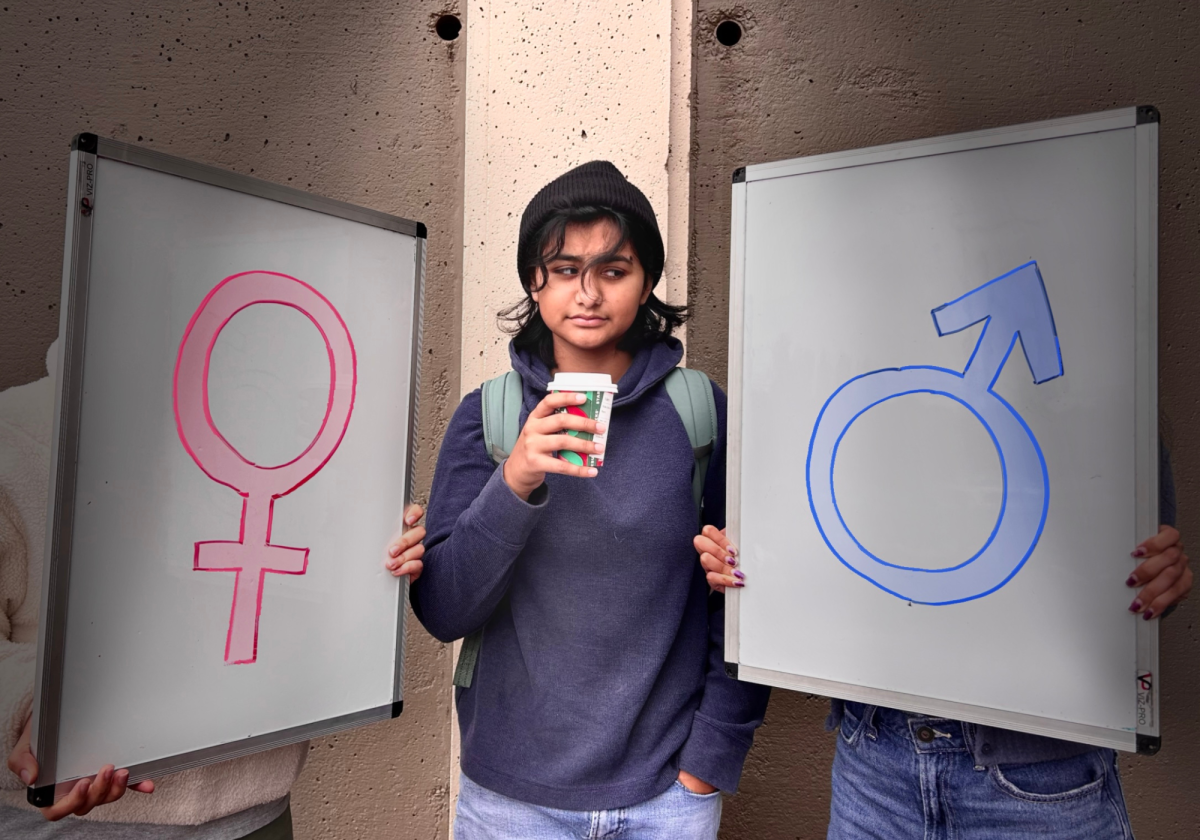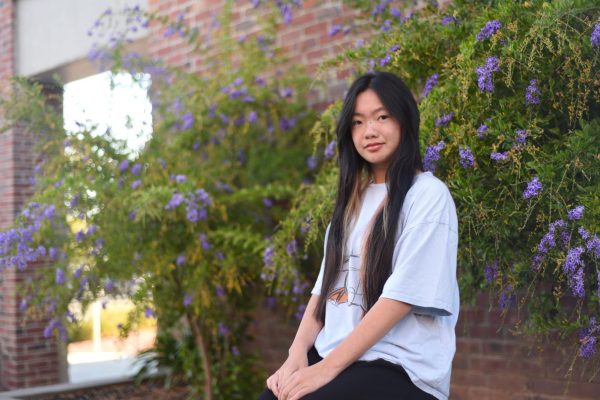It’s the beginning of the new school year, and MVHS teacher Mark Carpenter pulls out a sheet of paper and scans their new students of the year. They slowly go through the roster and match the students’ faces with the names on the paper, their eyes pausing on the columns marked ‘M’ and ‘F,’ the little letters that overlook students who exist beyond the typical binary.
Navigating life as a nonbinary educator has meant confronting the rigidity of traditionally binary systems for Carpenter. Having passed as a cisgender man for most of their life, they know full well how harmful it is to force someone into a box they have long outgrown. As a teacher, Carpenter constantly makes an effort to create a welcoming classroom within a school system that is sometimes not designed with nonbinary identities in mind.
“At the beginning of the year, I try to ask and make sure that students are comfortable with what I call them in class and with what pronouns we can use,” Carpenter said. “I know more and more of my colleagues do that now, but there should still be more training around being aware of and being respectful of student identities.”
 This lack of systemic accommodation is something nonbinary students like Junior Alex Sharma face. For instance, Sharma has struggled with how gender-neutral bathrooms are all located on one side of campus, and although the campus is relatively small, they describe the arrangement as inconvenient as they needed to adjust where they eat brunch and lunch accordingly. Another, more serious issue they see is the disrespect nonbinary students face from fellow students. They express that despite knowing that Cupertino is a relatively safe and accepting environment, instances such as these make them more afraid to correct others when being misgendered.
This lack of systemic accommodation is something nonbinary students like Junior Alex Sharma face. For instance, Sharma has struggled with how gender-neutral bathrooms are all located on one side of campus, and although the campus is relatively small, they describe the arrangement as inconvenient as they needed to adjust where they eat brunch and lunch accordingly. Another, more serious issue they see is the disrespect nonbinary students face from fellow students. They express that despite knowing that Cupertino is a relatively safe and accepting environment, instances such as these make them more afraid to correct others when being misgendered.
“I’ve heard a bunch of people say slurs and a bunch of insensitive jokes,” Sharma said. “But we can’t really control that, because people are going to keep making jokes anyway, unfortunately. It’s part of their mindset.”
Junior Lahari Yerragunta, who attends Homestead High School and also identifies as non-binary, shares Sharma’s experiences being misgendered by educators despite early efforts to establish their pronouns. For example, in Yerragunta’s freshman year, their Physical Education teacher told them that he “didn’t believe in pronouns.” They state that these instances feel especially disheartening when coming from teachers who claim to value student identity.
“When you say that you’ll read the ‘Get to Know You’ slides, when you say you want to get to know me better, that means that you are promising me that you acknowledge what I wrote there at the beginning of the year,” Yerragunta said. “But I know that you’re not being serious when right after, you misgender me. If you’re going to be like ‘I want to get to know you better,’ you should live up to it. Because then you mislead us, and it’s hurtful and disappointing. It’s like when you’re asleep in the morning and someone just throws ice cold water in your face.”
Beyond the classroom, Yerragunta also notes how the broader initiatives meant to address the struggles of nonbinary individuals, such as FUHSD’s monthly Advisories, feel somewhat superficial as well. While he understands that the Advisories are meant to promote kindness and acceptance within the school community, he questions the depth of such efforts as the design of the current Advisories feel surface-level and lackluster to him.

“I feel like the Advisories don’t connect to personal experiences,” Yerragunta said. “I wish the district branched out to talk to some of us to show they care. Just knocking on the corneas of whatever you’re deep diving into is not enough. If you really want to educate students across the district — of why prejudice is so wrong, of why this word is wrong and why discrimination is wrong, you need to go into broader aspects than just the tight circle you’re in with those YouTube videos you pull out.”
However, with these challenges also comes moments of support. Yerragunta highlights that it’s important to make an effort to educate oneself about nonbinary individuals — even though everyone begins with gaps in understanding, it should not be an excuse to remain ignorant. Sharma appreciates friends who take time to understand them and take the initiative to correct others when they are misgendered. Carpenter, too, finds hope in seeing students stand up for one another.
“I know a lot of people who are supportive,” Carpenter said. “I know people who use my pronouns properly. I have students who I’ve heard correct staff members for misgendering me and things along those lines. I see students looking out for each other and having each other’s backs and asking each other questions and it’s good.”










